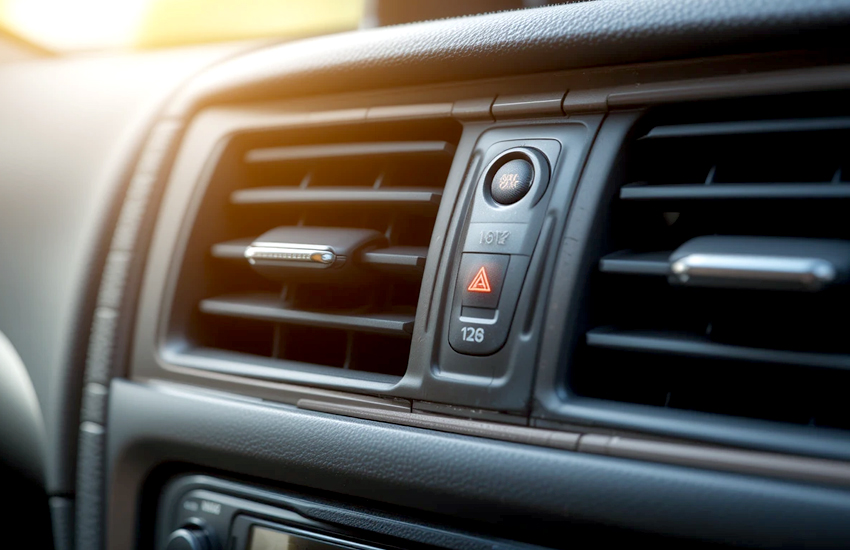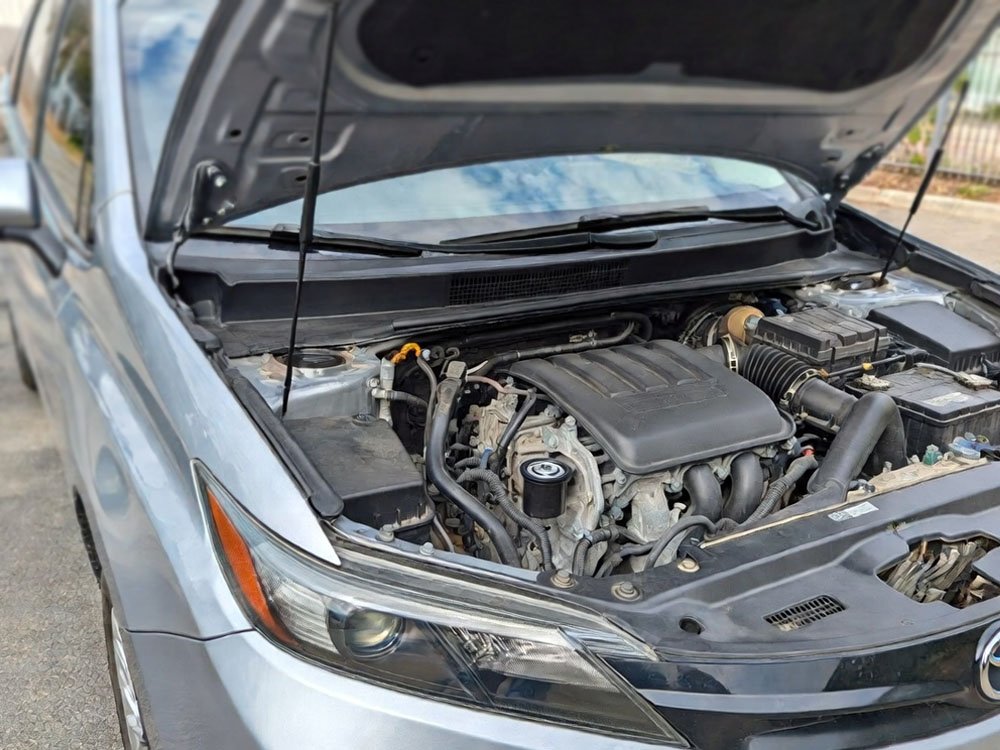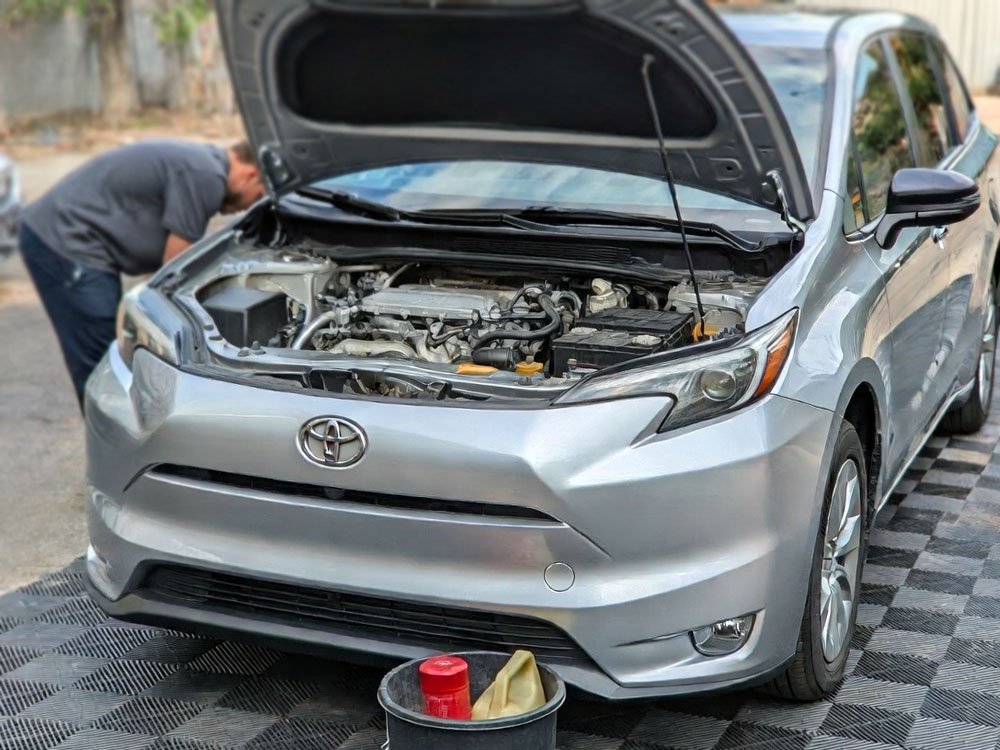As an Amazon Associate, I earn from qualifying purchases at no extra cost to you.
Signs That Your Car AC Needs to be Recharged: Don’t Ignore These!
When the temperature rises and you jump into your car, the last thing you want is to blast the AC only to feel warm air blowing out. It's frustrating, right? Especially when you need that cool breeze to make your drive comfortable. But what if the issue isn't just a simple setting or a malfunctioning fan? What if your car's AC needs to be recharged? Knowing the signs of this can save you a lot of headaches in the long run. In this post, we'll go over everything you need to know to identify when your car's AC is in trouble and how to fix it.

Understanding the Importance of a Well-Functioning Car AC
When you think of your car’s air conditioning, you probably don't give it much thought until it stops working. But let's take a moment to appreciate this cooling miracle! Your car’s AC system isn’t just for comfort; it's an essential part of the overall driving experience. The primary purpose of the AC is to provide a comfortable climate inside the vehicle, especially during those hot summer months. But it does more than just cool the air; it helps reduce humidity and keeps you safe from fogging windows, which could impair your visibility.
The AC in your car works like a little magic machine: it uses refrigerant, a chemical compound that changes from gas to liquid and back, to absorb heat and cool down the air that blows into your cabin. The system relies on a pressurized loop to cycle refrigerant, which means that a lack of refrigerant can cause the entire process to fail. Think of the refrigerant as the lifeblood of the system – without it, the AC can't function.
Now, we all know that nothing lasts forever, including your car’s AC. Over time, the refrigerant leaks out, and the system slowly loses its ability to cool the air. That's where the importance of a well-functioning car AC comes in: without it, your driving experience can turn from enjoyable to unbearable in the blink of an eye. In fact, not only will you feel uncomfortable, but it can also lead to further damage to other components within the system. It's kind of like letting a small issue go unchecked until it turns into a big problem.
Getting the refrigerant levels checked regularly and recharged when necessary will keep your AC running smoothly. Regular maintenance can extend the life of the system and ensure it's working at peak performance. But the trick is knowing when your system needs a recharge. Let's dive deeper into the signs that indicate your AC might need some attention.
Common Symptoms of Low Refrigerant Levels in Your Car AC
Alright, so you're sitting in your car on a sunny day, and you flip the switch for your AC expecting to feel that glorious cool air… but nothing happens. Or worse, the air that's coming out is warm! If you've ever experienced that sinking feeling in your stomach, wondering what went wrong, you're not alone. One of the most common reasons for an underperforming AC is low refrigerant levels. This could be the sign that your system needs a recharge. So, let's break it down and explore the symptoms to watch out for.
Warm Air Instead of Cool Air
This one is pretty obvious, but it's worth mentioning. If your car's air conditioning is blowing warm or lukewarm air instead of that refreshing cool breeze, it's one of the first signs that the refrigerant levels are low. When the refrigerant runs out, the AC system can no longer cool the air efficiently. Instead of a nice, chilly gust, you'll get warm or slightly cooler air that leaves you uncomfortable in the heat.
If this happens, don't panic. It doesn't necessarily mean that your AC is broken; it might just need to be recharged. But it is a red flag that something isn't right. If you've checked the settings, fan speed, and temperature and everything seems fine, it's time to consider the refrigerant levels as the culprit.
AC Takes Longer to Cool
Another sign that your AC might need a recharge is if it takes longer than usual to cool down the cabin of your car. A properly functioning AC should cool your car's interior fairly quickly, especially if you're driving on a warm day. But when the refrigerant is low, the system has to work harder to cool the air, meaning it will take longer to achieve the temperature you want.
This sluggishness can be frustrating, especially if you're in a hurry or just want to get that fresh, cool air to help you feel comfortable. If your car's AC isn't cooling down quickly, it could be a sign that the refrigerant isn't circulating properly. This may not be the most obvious symptom, but it's something to keep in mind.
Unusual Noises or Sounds
We all know that AC systems can make a little noise when they're running. The sound of the fan and compressor working is nothing unusual. But if you start hearing strange or unusual noises coming from your AC, it's a sign that something's wrong. Hissing, rattling, or whistling sounds could indicate a refrigerant leak. When the refrigerant level is low, air can get trapped in the system, causing it to make odd noises.
If you hear a hissing sound, it could mean that the refrigerant is leaking out of the system. While this is a sign of low refrigerant, it's also a good indicator that it's time to call a professional for a recharge. If the noise persists, it could be a sign of a more serious issue that needs immediate attention.
Ice Buildup on the Evaporator Coils
This might sound a bit counterintuitive—after all, we're talking about an AC system that's supposed to be cooling things down, not freezing them. However, when your car's AC is low on refrigerant, it can cause ice to build up on the evaporator coils. This happens because the refrigerant is not circulating properly through the system, causing the moisture in the air to freeze on the coils.
If you notice frost or ice forming on the AC vents or coils, it's a sure sign that your refrigerant levels are too low. In some cases, this can even cause the entire AC system to stop working altogether. If you spot any ice buildup, it's time to get your AC checked out as soon as possible.
Foul or Musty Odors
Okay, so this one's a little gross, but it's something to watch out for. If your car's AC is giving off foul, musty, or sour smells when you turn it on, it could be a sign that the refrigerant levels are low. The air conditioning system can become a breeding ground for bacteria and mold when it's not working efficiently. A lack of refrigerant can affect the airflow, which allows moisture to accumulate, creating the perfect environment for these nasty odors.
You might also notice a sweet, chemical smell if there's a refrigerant leak. This is because the refrigerant itself has a distinct odor that can leak into the cabin if there's a crack or hole in the system. In either case, this is a sign that your AC system needs attention, and a recharge is likely in order.
How to Maintain and Recharge Your Car AC System
Now that we've covered the symptoms, let's talk about what you can do about it. When your car's AC starts to show signs of needing a recharge, it's important to address the issue as soon as possible. But how do you actually recharge your car's AC system? Should you tackle the task yourself, or is it something best left to the pros? Let's explore the different options for maintaining and recharging your AC system.
Checking the Refrigerant Levels
The first step in the process is to check the refrigerant levels in your car's AC system. Many modern cars have a built-in indicator that will alert you when the refrigerant is low. However, if your car doesn't have that feature, you can use a pressure gauge to check the levels yourself. Refrigerant gauges are inexpensive and easy to use, and they allow you to determine whether your car needs a recharge.
When you use a pressure gauge, you'll typically check the low-pressure side of the system. If the pressure is too low, it's an indication that your refrigerant is running low. If it's too high, it might suggest that there's an issue with the system, like a blockage or a leak.
Do-It-Yourself vs. Professional Service
Once you've confirmed that your refrigerant levels are low, you have two main options: do it yourself or take it to a professional.
Do It Yourself (DIY)
If you're a hands-on type of person, you can purchase an AC recharge kit from an auto parts store. These kits usually come with everything you need to recharge your system, including refrigerant and a hose that connects to your car's AC port. You'll need to follow the instructions carefully, as overcharging the system can cause more damage.
One advantage of doing it yourself is cost. A DIY recharge kit is generally cheaper than paying for professional service. However, it can be a bit tricky if you've never done it before, and there's a risk of making a mistake that could lead to more damage.
Professional Recharge
If you're not comfortable doing it yourself or if you want peace of mind, taking your car to a professional is the way to go. Professional mechanics have the tools and expertise to recharge your system correctly. They can also check for leaks, ensure that the refrigerant levels are balanced, and inspect the entire system for any other issues.
It's worth noting that if your AC is low on refrigerant, there may be a leak somewhere in the system. A professional will be able to identify and fix any leaks, which will prevent you from constantly needing to recharge your AC.
Regular Maintenance
To avoid the need for frequent recharges, regular maintenance is key. Be sure to have your AC system inspected at least once a year, especially before summer starts. Regular maintenance can help detect small problems before they become bigger, more expensive issues. Additionally, replacing the cabin air filter and keeping the system clean can improve airflow and ensure the AC works efficiently.
I hope this post helps you identify the signs your car’s AC might need a recharge! Whether you decide to take it on yourself or visit a mechanic, keeping your system in check will ensure you're always comfortable on the road.
Frequently Asked Questions
Is it dangerous to drive with low refrigerant in my car?
Driving with low refrigerant is not dangerous, but it can make your car uncomfortable during hot weather. It can also lead to further damage to your AC system if not addressed.
Can I recharge my car’s AC myself?
Yes, you can recharge your car’s AC yourself with a recharge kit. However, it’s essential to follow the instructions carefully to avoid overcharging or damaging the system.
Do I need to replace the refrigerant every year?
Not necessarily. If your refrigerant is still at an optimal level, there's no need to replace it every year. However, if you notice signs of low refrigerant, a recharge may be required.
Is it normal for my AC to stop working during the winter?
It's normal for your AC to stop working in the winter since it's not needed to cool the air. However, if it's not working properly when you need it during warmer months, a recharge might be necessary.
Can low refrigerant cause my car AC to break?
Yes, low refrigerant can cause your AC system to stop working properly or even lead to a breakdown of other components if left unchecked for too long.
Is it expensive to recharge my car’s AC?
The cost to recharge your car's AC system can vary. DIY kits are generally more affordable, while professional service can be a bit more expensive, but it ensures the job is done correctly.
Do I need to replace the entire AC system if it has a refrigerant leak?
Not necessarily. If your AC system has a refrigerant leak, it may just need a repair rather than a full replacement. A professional mechanic can help determine the extent of the damage.
Can low refrigerant affect other parts of my car?
Yes, if the refrigerant is low, it can affect the compressor, evaporator coils, and other AC components. Regular maintenance helps prevent these issues from becoming bigger problems.











